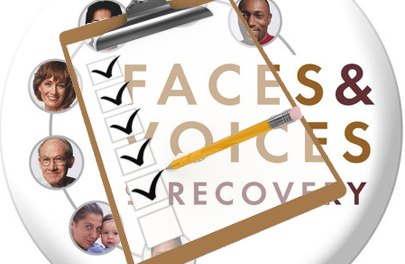Back when I was working at a treatment center I had a return visit from a young woman who had just celebrated her second year of recovery. Hadn’t seen her since she left our inpatient program, after a very rocky course of treatment that resulted in her signing out against staff advice a few days before scheduled discharge. I believe we were her sixth stop on the residential rehab circuit. The staff were talking about how good she looked and sounded. They were more surprised than anyone, I think.
She made a point of stopping by my office to thank me for all the help we’d given her. She spoke glowingly of the therapy and the counselors and the nurse and even the office staff. Pleased, I quizzed her a bit on what she’d done since she left. After about ten minutes of conversation, I realized something: though in her mind we’d played a principal role in her recovery, she’d actually followed none of the directions we’d given her.
And yet somehow it worked. A few weeks later I mentioned that to a clinician. He shrugged and said that recovery was a big room with many doors.
“What does that mean?” I asked.
“I dunno. Sounds good, though, doesn’t it?”
It’s great to receive credit for somebody’s return to health, but rarely is it deserved. That patient had been through half a dozen programs; does that mean we succeeded where others failed? I sincerely doubt it. More likely the effects of treatment are cumulative. She got something out of each experience, even if it seemed like a negative at the time.
Why can’t we predict in advance which approach will work for a particular patient?
Well, recovery is a big room, see, with many doors…














I would be very worried if you did not take credit for the help you gave her in her last therapy. i agree there is a cumulative effect of several therapy attempts especially if different therapies are tried, but it is only when that critical point in reached in the Recoverer that tips them over from having an almost “timid” belief in the likely success of treatment to a much more rock solid self belief and determination to succeed. I think you take the credit for providing the treatment that finally lead to the right door out of the room and back into society. Perhaps Recovery is not a room with many doors but a Mansion with only one check out desk but a lot of fire escapes and back doors to leave by.
Don’t over play the fact that two years is not long because every sober person of 3 years + has had a second anniversary and many will have had more than one. I know Michele that you appreciate that because you acknowledged it as a miracle.
It took several years and several attempts to get sober for my switch to be thrown; and when it was, I believe success was guaranteed. The problem is it is not the same switch in everyone. We need to find a way to get the one in recovery to identify that switch and get them to throw it themselves. I think that this is where coaching comes in.
Unfortunately, as much as we’d like to view two years as a long time (and it is a miracle), it is a blip when it comes to predicting long-term sobriety. Many, many people get through a few years doing it their way only to relapse in the end. We need to start looking back at those who have stayed sober for a lifetime (AARP membership and all) in order to see which suggestions are vital.